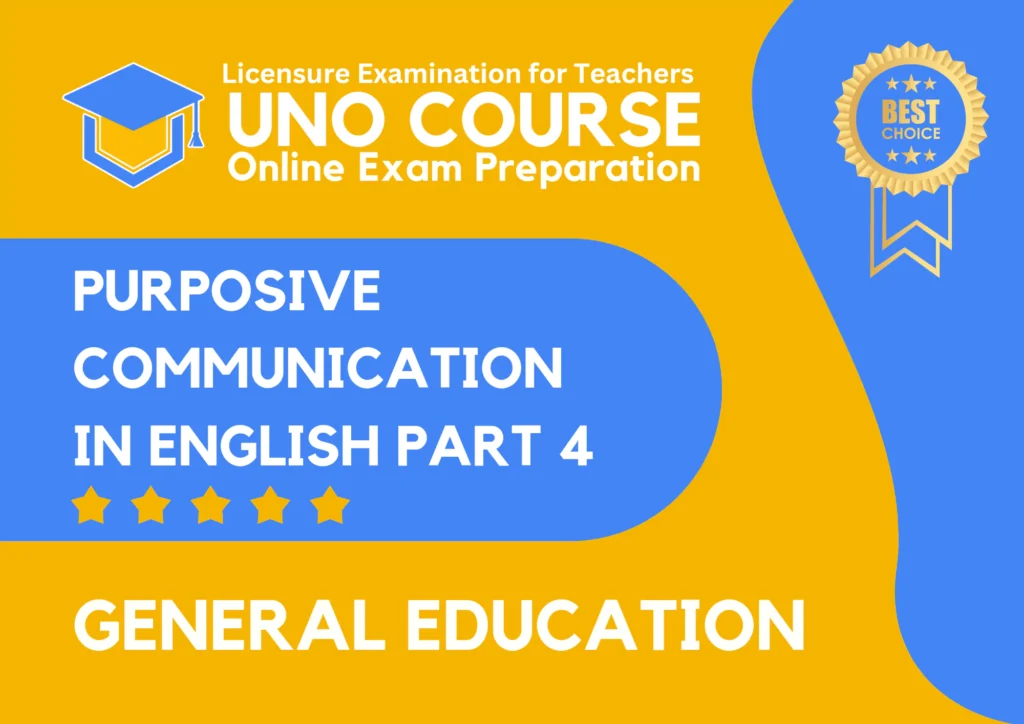
General Education in the New Curriculum – English Test 4
Purposive Communication in English
Our experiment failed so we are _____.
A. close to home
B. back to square one
C. bent out of shape
D. in cahoots with someone
B. back to square one
Back to square one means to start again.
There was a rumor in class that one class officer was _____ group of cheaters during the examination.
A. in cahoots
B. bent out of shape
C. close to home
D. back to square one
A. in cahoots
The idiomatic expression “in cahoots” with someone means conspire with someone to do something dishonest.
I bid goodbye to my classmates with _____.
A. bent out of shape
B. fish out of water
C. bent out of shape
D. lump in your throat
D. lump in your throat
(Have a) lump in your throat-have a tight feeling in your throat because of a strong emotion such as sadness or gratitude.
As a transferee for this pandemic school year, I felt like a _____.
A. a fish out of water
B. close to home
C. bent out of shape
D. back to square one
A. a fish out of water
Like (a) fish out of water means feel uncomfortable in unfamiliar surroundings.
Which is an improvement of the sentence? wrong with the sentence?
A. While lecturing on artificial intelligence, she saw that the audience was all ears.
B. While lecturing regarding artificial intelligence, the audience was all ears.
C. While lecturing on artificial intelligence, the audience was all ears.
D. While lecturing on artificial intelligence, all ears was the audience.
A. While lecturing on artificial intelligence, she saw that the audience was all ears.
A dangling modifier is improperly separated from the word it modifies or describes.
Purposive Communication in English
Which words complete the sentence correctly?
A. fun of
B. fond of
C. fond with
D. fun for
B. fond of
Fond of means having a liking for or love of (someone or something): doing (something) a lot
A. on
B. in
C. at
D. during
A. on
The given sentence shows a specific date which is 15th of February. Thus, we use “on” when a specific date is given.
A. on
B. during
C. in
D. at
C. in
Since the given sentence did not use a specific date, we use “in.
A. at
B. on
C. in
D. through
D. through
Drive through means to pass through something like a tunnel.
A. “One of the reason”-should be “One of the reasons”
B. make “why he is” into “why is he”
C. make “his lack” into “the lack”
D. “of self-confidence”- should be “the lack of self-confidence”
A. “One of the reason”- should be “One of the reasons”
The correct answer should be “should be one of the reasons”; cannot be one of the reason which is only one.
